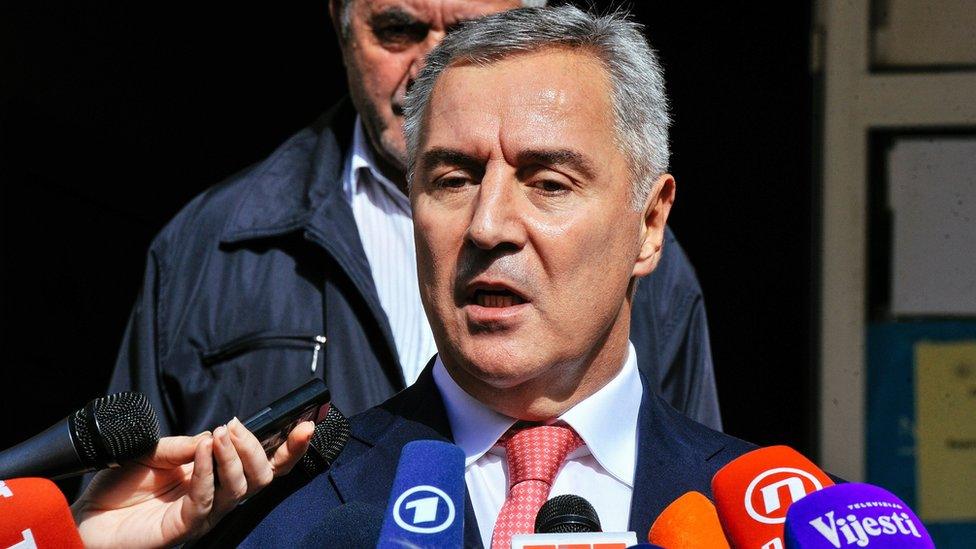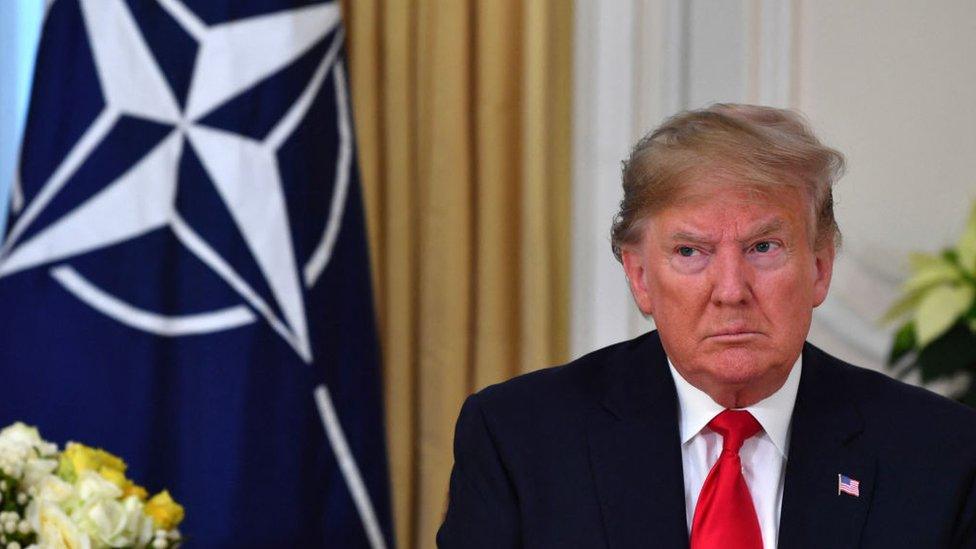Nato and Serbia put bombing behind them
- Published
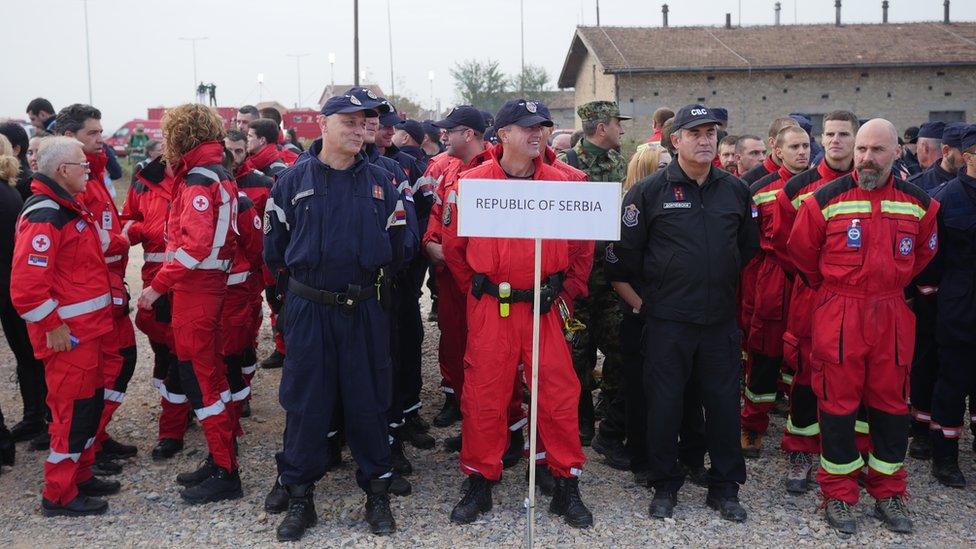
Emergency responders from Serbia and regional allies took part in a disaster response exercise
The Nato anthem does not get too many airings in Serbia. But Serbia is for the first time hosting a large-scale Nato-led exercise, so this little-heard music has been blaring out this week at Mladenovac, about an hour outside Belgrade.
Serbians have not forgotten Nato's actions in 1999, when alliance aircraft bombed the country for 78 days, in an effort to force Yugoslav president Slobodan Milosevic to withdraw troops from Kosovo and allow international peacekeepers in. Other ex-Yugoslav countries may have joined Nato, but public opinion in Serbia remains strongly opposed.
As the anthem plays, Serbia's President, Aleksandar Vucic, and Nato Secretary General Jens Stoltenberg stand straight-backed, almost at attention, along with representatives of three dozen states. Behind them, an emblem merges Serbia's flag with the Nato banner for an exercise involving Nato's main civil emergency response system.
The scene in Mladenovac may come as a jolt to those who have Belgrade down as a staunch ally of Moscow.
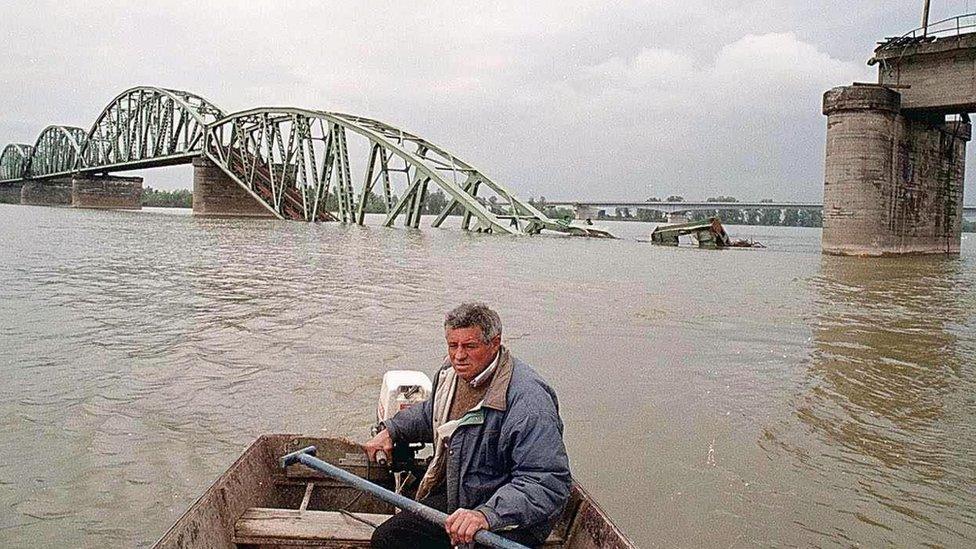
Nato carried out an 11-week bombing campaign in 1999 and this Belgrade bridge was among the targets
In fact, Serbia has long pursued a policy of military neutrality and its troops regularly take part in exercises organised by both Russia and Nato.
Both sides are at pains to point out that this is not a military exercise but Mr Vucic tells the BBC that he feels it is time for Serbia to re-examine its negative feelings about Nato.
"I think it's all about emotional issues - mainly because of 1999 and the Kosovo issue. This is something that we need to work on - and that's what we're going to do in the future. I think that after a while, we're going to have to put things on more rational foundations. And it will happen."
After inspecting the participants and their activities, Mr Vucic and Mr Stoltenberg head to Belgrade to address a security forum. It has the air of a charm offensive. But Mr Stoltenberg says that there is no question of making a hard sell.
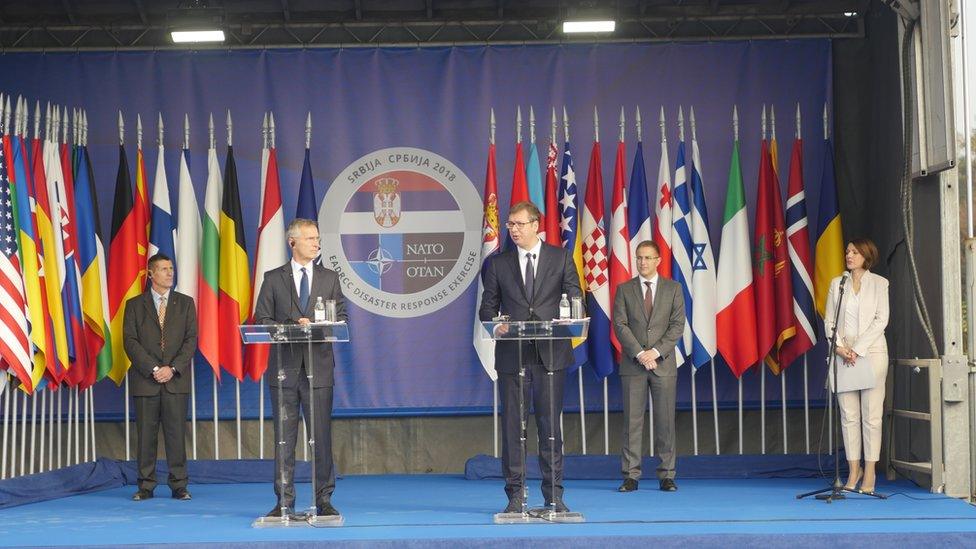
Jen Stoltenberg (l) and Aleksandar Vučić (r) put on a united front
"Serbia is a neutral country; they work with Nato and have many exercises and projects with us," he says. "But they also have co-operation with Russia. And we respect that as a decision of a sovereign nation."
Even so, the Western Balkans is currently causing Nato much concern.
From allegations of Russian meddling in Montenegro and Macedonia to the election of a Serb separatist to the Bosnian presidency and proposed territory swaps between Kosovo and Serbia, there is an unsettled and, says Mr Stoltenberg, undesirable mood across the region.
"The partnership with Serbia has become more important. The fact is, we have seen some tendencies towards returning to the very strong nationalistic rhetoric of the past. And we have to avoid that."
But whether Serbians are willing to accept closer ties to Nato is another question.
'We can all gain a lot'
A stroll around Belgrade confirms that the alliance still rankles among many people.
Anti-Nato murals and graffiti are reminders of the 1999 Nato bombing campaign, external which succeeded in forcing then-President Slobodan Milosevic to withdraw troops from Kosovo - but left shattered government buildings and enduring resentment in Belgrade.
Misa Djurkovic, the director of Belgrade's Institute for European Studies, says it is hard to see attitudes changing.
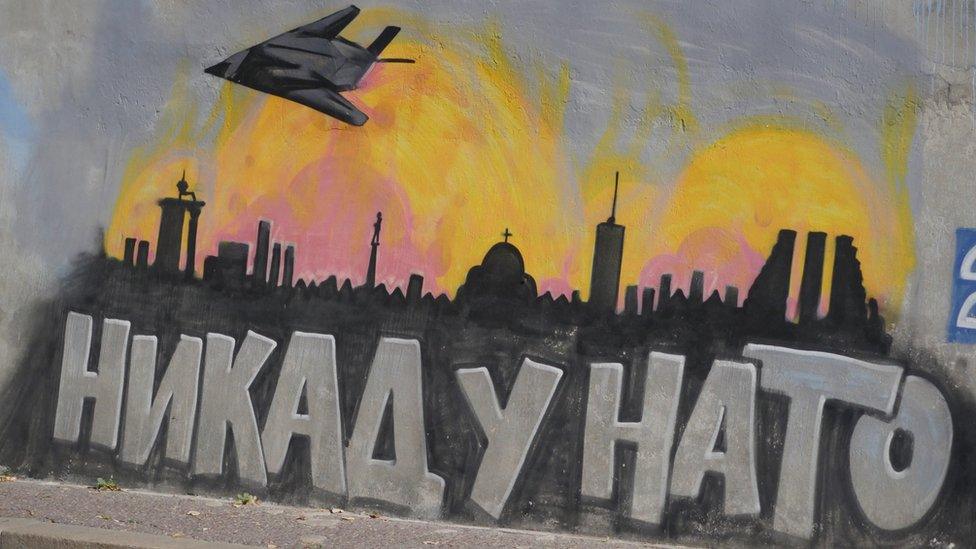
Graffiti in Belgrade says "Never in Nato"
"After 2000, Nato countries have continued to lead general regional politics here very much based on double standards." she says. "People are coming to the very logical conclusion that Nato is not doing many things which would improve their perception of the West."
But others are convinced that with EU accession talks ongoing, it is inevitable that Serbia will move further towards the West. Jelena Milic of Belgrade's Center for Euro Atlantic Studies is one of them.
"We can all gain a lot. The country moving closer to the political West - for the time being militarily neutral - but with a process of EU integration which could lead to democratic oversight over the army. But most importantly, cutting the key avenue of Russian influence in the region."
Of course, the disaster response exercise could also be taken at face value, rather than a sign of any shift in allegiances.
But with the 20th anniversary of the Nato bombing approaching, it does seem that rather than recriminations, reconciliation may be in the air.
- Published8 October 2018
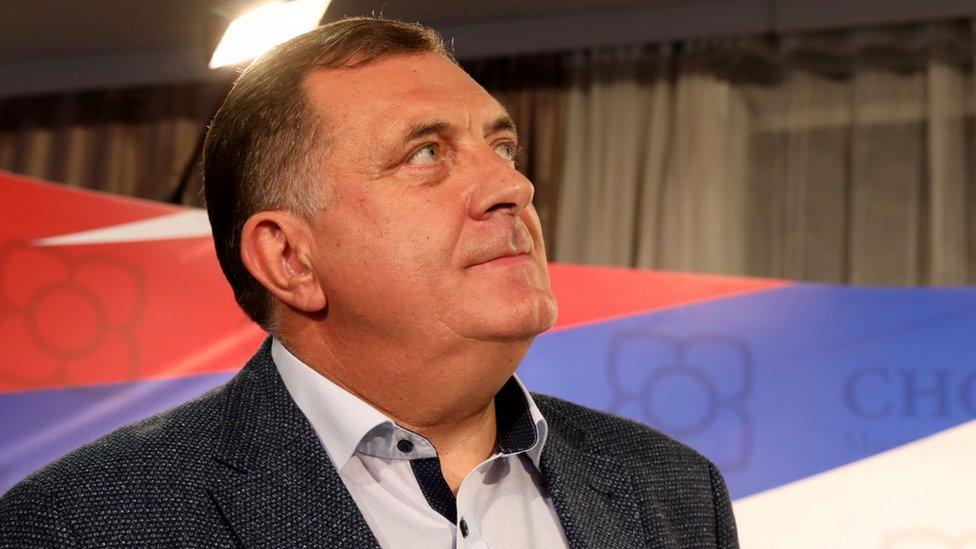
- Published28 January
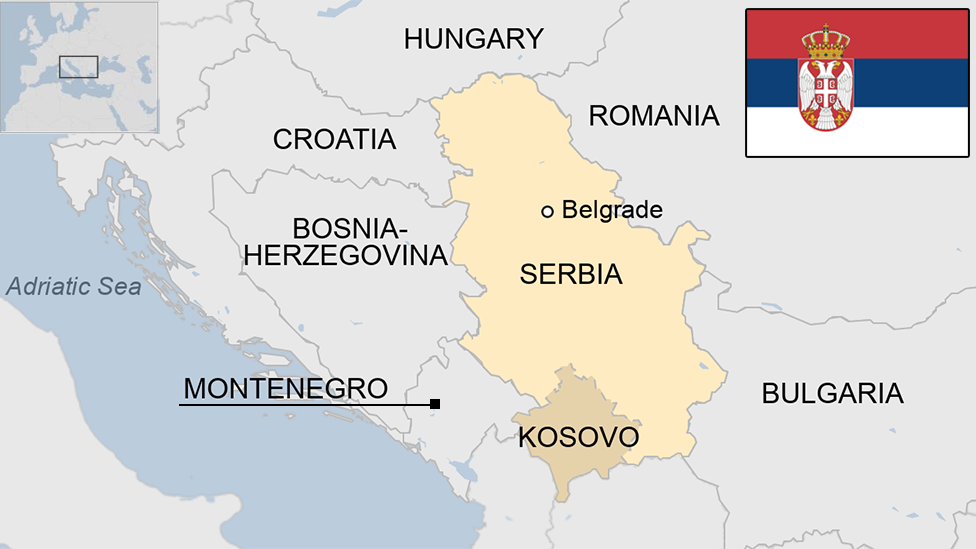
- Published7 September 2018
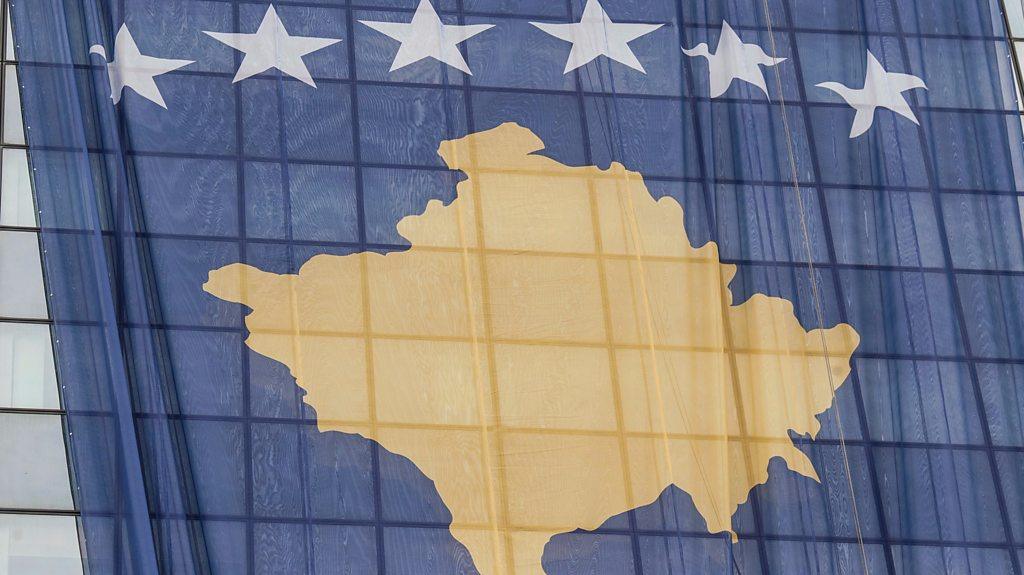
- Published7 June 2018
- Published11 July 2018
- Published28 June 2023
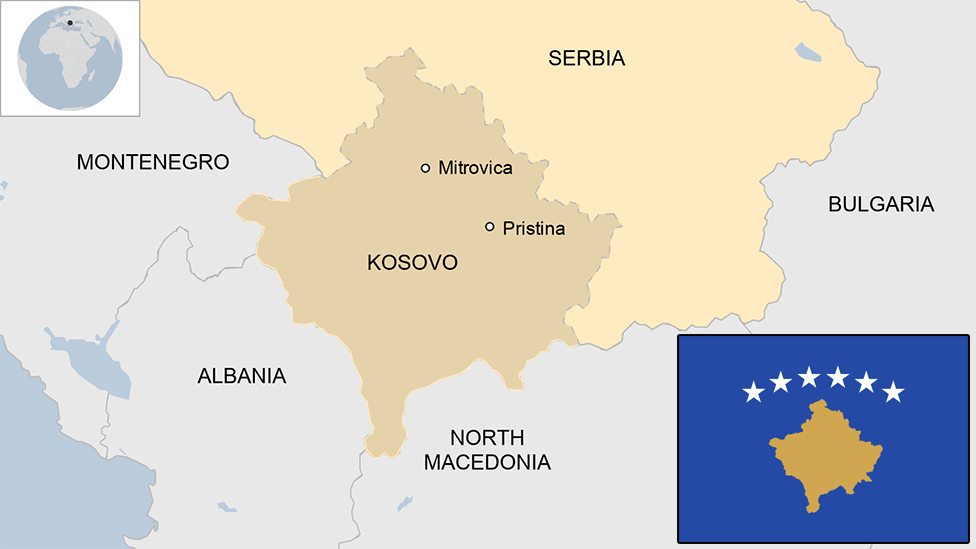
- Published6 November 2016
